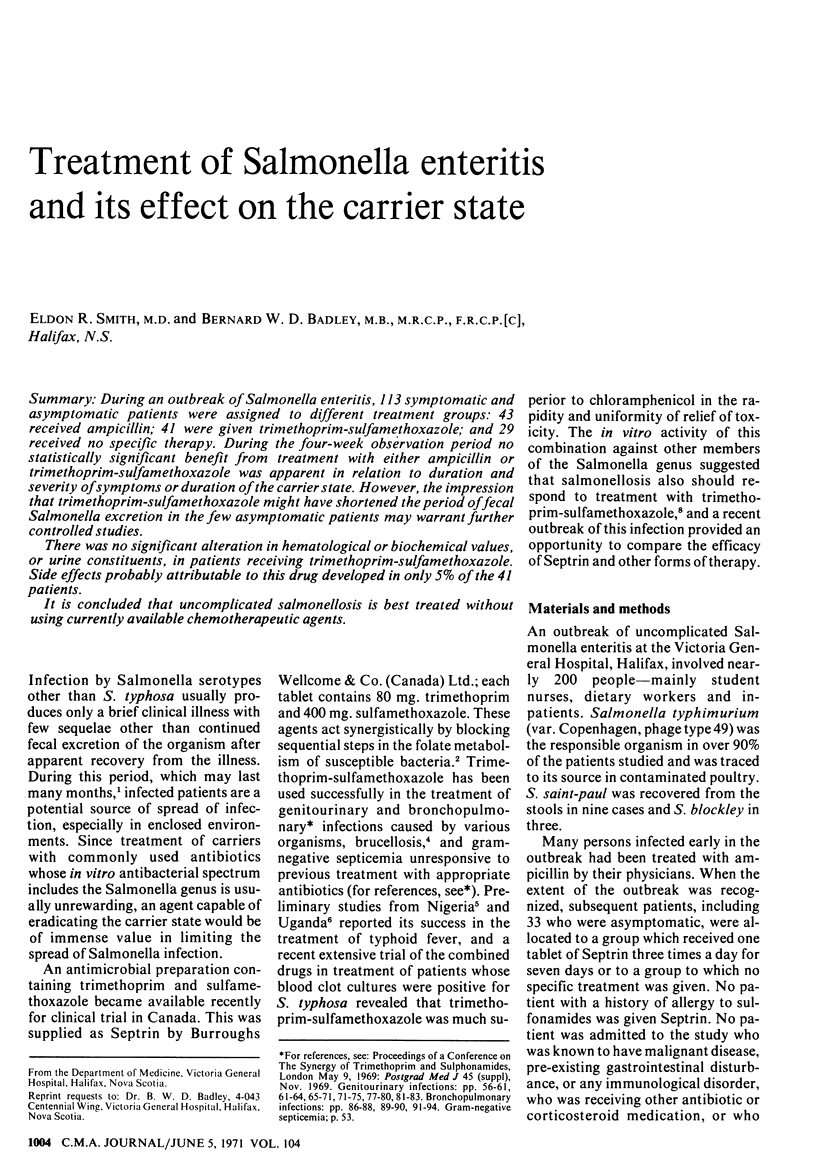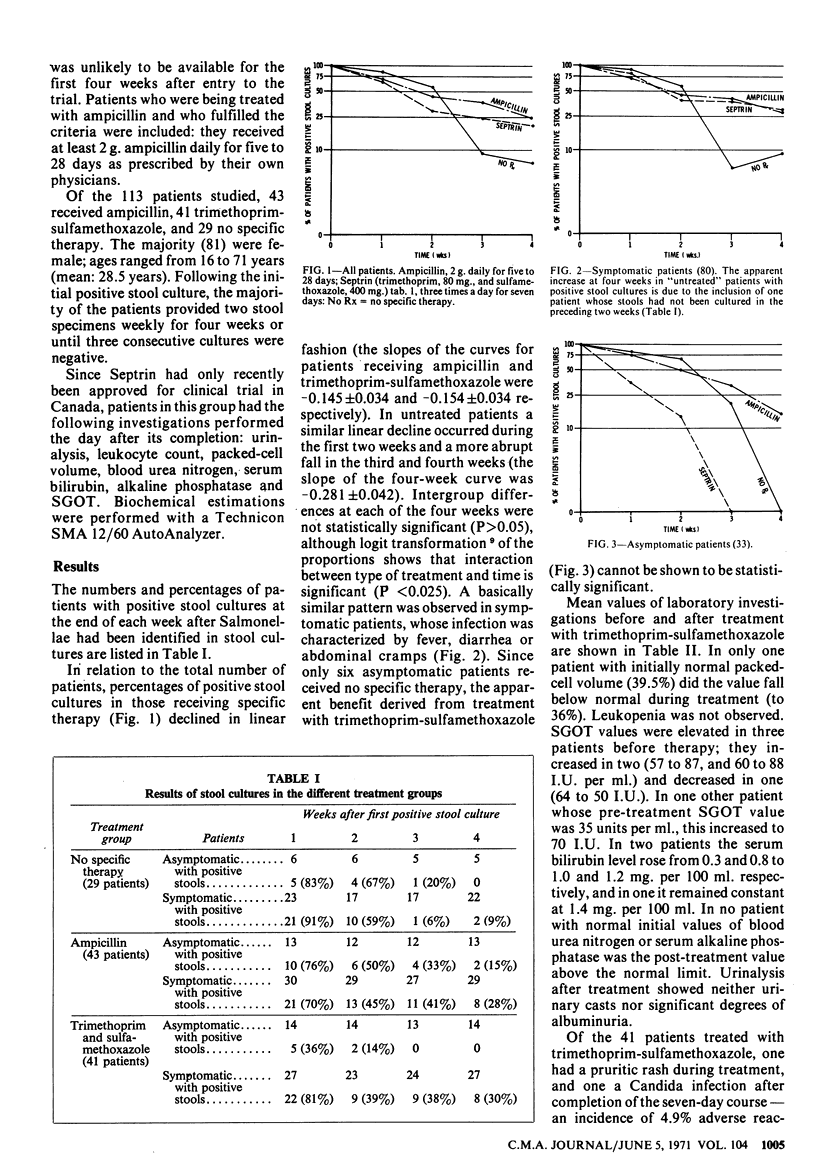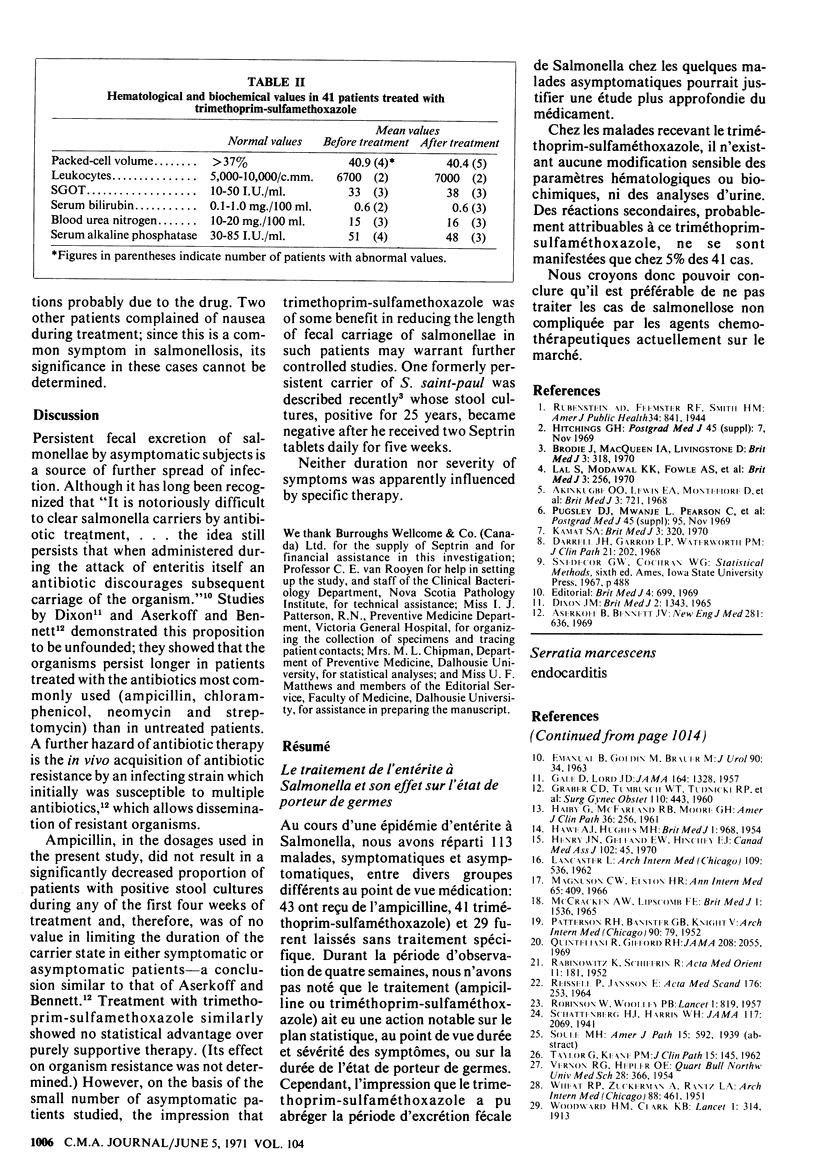Abstract
During an outbreak of Salmonella enteritis, 113 symptomatic and asymptomatic patients were assigned to different treatment groups: 43 received ampicillin; 41 were given trimethoprim-sulfamethoxazole; and 29 received no specific therapy. During the four-week observation period no statistically significant benefit from treatment with either ampicillin or trimethoprim-sulfamethoxazole was apparent in relation to duration and severity of symptoms or duration of the carrier state. However, the impression that trimethoprim-sulfamethoxazole might have shortened the period of fecal Salmonella excretion in the few asymptomatic patients may warrant further controlled studies.
There was no significant alteration in hematological or biochemical values, or urine constituents, in patients receiving trimethoprim-sulfamethoxazole. Side effects probably attributable to this drug developed in only 5% of the 41 patients.
It is concluded that uncomplicated salmonellosis is best treated without using currently available chemotherapeutic agents.
Full text
PDF




